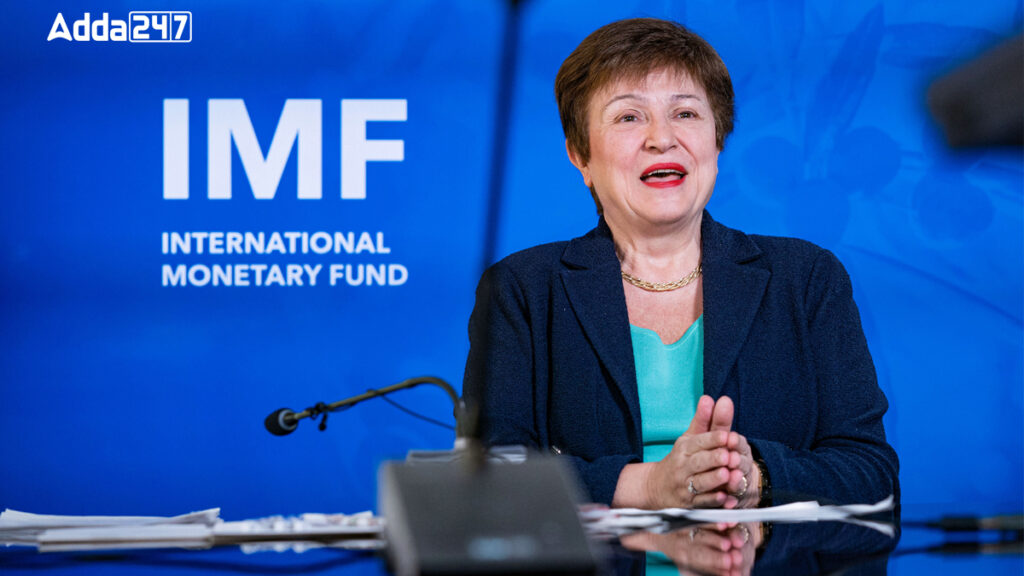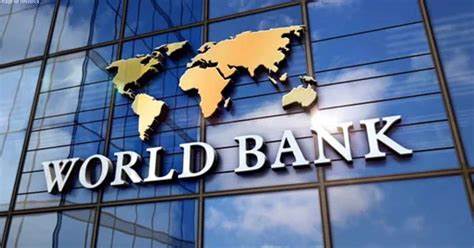Looking Inside the IMF Deal
Malawi has just made a bold decision. It has paused its $175 million bailout program with the International Monetary Fund (IMF), choosing instead to protect its people from crushing economic demands that would have caused more harm than good.
To some, this may look like failure. But to those who understand the real cost of IMF “support,” it is a courageous act of economic self-defense—one that deserves praise, not criticism.
In truth, Malawi has not walked away from the IMF. It has stood up to it.
When Malawi’s Finance Minister Simplex Chithyola Banda took to the BBC World Service to explain why the country has paused its $175 million IMF bailout program, he was not just defending a policy decision. He was making a bold political and moral statement: Malawi will not trade people’s survival for externally imposed economic dogma.

Kristalina Georgieva, IMF Managing Director
For years, the IMF has been prescribing one-size-fits-all austerity measures to vulnerable economies, often ignoring the lived realities of their citizens. But this time, Malawi pushed back, and rightly so.
Here’s why this move is not just politically smart—but ethically necessary and economically justified.
When Help Feels Like Handcuffs
For decades, the IMF has claimed to help poor countries stabilize their economies. But many African nations, Malawi included, know the truth: that help often comes wrapped in painful conditions.
In Malawi’s case, the IMF demanded:
- Raising fuel prices – in an economy already reeling from inflation and currency devaluation.
- Freezing public sector hiring – risking a total breakdown in essential services like health and education.
- Cutting salaries and wages – undermining the very workers holding the country together.
Let’s call this what it is: economic cruelty dressed up as reform.
These are not just technical measures—they strike at the very heart of people’s survival. Imagine telling nurses, teachers, and civil servants they can’t be hired or paid decently, while also telling the public to pay more for fuel, transport, and food. That’s not reform. That’s a recipe for revolt.
Had the government blindly followed these recommendations, the results would have been devastating. Here’s why.
Fuel Price Hikes: Pouring Fire on an Inflation Crisis
Malawi is a landlocked country that depends heavily on imported fuel. Fuel prices directly affect everything—from transport fares and food prices to electricity tariffs and manufacturing costs.
Increasing pump prices now would spike inflation, widen inequality, and push more Malawians below the poverty line. We’ve seen this before—fuel hikes have triggered mass protests in countries like Zimbabwe, Nigeria, and Kenya. In Malawi’s case, the timing—months before a national election—would have been politically and socially explosive.
“You can’t build up reserves while fuel stations are dry,” the Minister argued. And he’s right. What’s the point of foreign exchange if it leaves ambulances and farmers’ trucks stuck in line for fuel?
Freezing Public Hiring: Weakening an Already Fragile State
The government is one of the largest employers in Malawi. Schools, hospitals, agricultural extension services, and disaster response units all rely on public servants.
Freezing recruitment, as the IMF suggested, would paralyze these services. In a country with a high youth population and chronic unemployment, denying job opportunities in the public sector is not just an economic misstep—it’s a social time bomb.
This condition would have essentially forced the government to watch health centers operate without nurses, schools without teachers, and ministries without support staff.
Salary Cuts: Destroying Morale, Fueling Discontent
To many, in Malawi’s civil service, salaries are already modest. Cutting them would not only demoralize workers but also erode trust in government. It risks mass resignations, under-the-table corruption, and a total loss of motivation.
Civil servants, from police officers to hospital staff, are on the frontlines of public service. Weakening them financially, especially during an election period, would amount to cutting the lifeline of national stability.
“These are not just technical demands. They go to the very heart and soul of the country’s survival,” as one policy analyst observed.
The Ghost of Colonialism in a New Suit
Many critics today describe the IMF’s approach as neo-colonialism—a modern-day form of imperial control. Instead of armies and administrators, this control is exerted through dollars and debt.
In the past, colonial powers stripped Africa of its minerals, labor, and dignity. Today, institutions like the IMF often impose policies that strip countries of their ability to govern independently.
They dictate budgets, salaries, fuel prices, and public sector staffing—decisions that should be made by elected governments, not foreign technocrats.
This is why so many people across Africa are fed up. They see these policies for what they are: tools that keep poor countries poor, keep them dependent, and keep them obedient to a global system that still serves the powerful at the expense of the weak.
A Radical Stand Worth Applauding
Chithyola Banda explained it clearly in his BBC interview: the IMF’s conditions were simply unrealistic and would have caused deep pain to ordinary Malawians. What kind of support forces a government to starve its own people of jobs, fuel, and wages just to meet “benchmarks”?
That’s not economic planning. That’s economic sabotage.
The minister made it clear that Malawi still wants to work with the IMF—but on terms that make sense for its people. The program will be renegotiated after the September elections. And until then, the government will focus on real issues—fuel supply, public service delivery, and protecting livelihoods.
Critics may say that walking away from the IMF deal shows failure. But in reality, this is one of the most courageous and people-centered decisions the Malawi Government has made in recent years.
In a global system where weaker nations are often bullied into submission, Malawi took a stand. It said: “We won’t sacrifice our people to satisfy fiscal models that ignore human cost.”
This is not economic recklessness—it is strategic resistance.
Rather than implement destructive reforms for short-term access to dollars, the government has chosen to pause, reflect, and renegotiate—and with elections only months away, it’s a prudent and principled move.

A Ray of Hope: The World Bank Steps In
Critics feared that pulling back from the IMF would scare away other donors. But just the opposite happened. Malawi’s refusal to bow to IMF conditions hasn’t scared away all its development partners.
This week, the World Bank, sent a strong message to its sister institution and went ahead to approve a massive $350 million grant to support Malawi’s Mpatamanga Hydro Power Project—one of the country’s biggest infrastructure investments in years.
This is a clear signal: Malawi still has friends, and it still commands international trust. The IMF is not the only path. This approval shows that Malawi still enjoys strong international trust. Development partners can see the difference between reckless fiscal behavior and responsible defiance in the face of unrealistic demands.
“This is nothing but a show of confidence,” said Minister Chithyola Banda. And it is.
Final Thoughts: A Call for a More Humane Global Finance System
This is bigger than Malawi. It’s a wake-up call to the entire global financial system. You cannot continue to demand that poor countries bleed their people dry in order to access loans. You cannot build economic “stability” on the backs of teachers, nurses, and minibus drivers who can no longer afford to live.
The IMF needs to change. It must start listening to the voices of those who live with the consequences of its policies. It must end the practice of setting rigid, top-down conditions without considering local realities.
Because if it doesn’t, more countries will follow Malawi’s lead. Malawi’s decision must spark a bigger conversation about how global financial institutions engage with developing nations. Yes, macroeconomic stability is important—but so is social dignity.
The IMF must start tailoring its programs with realistic, context-aware, and people-first conditions. Otherwise, the pushback seen in Malawi today will become a global trend.
Let this moment stand as a reminder: economic reform must not come at the cost of national unity, public service, and human well-being.
Malawi didn’t fail. Malawi stood up. It chose dignity over debt. It chose people over politics. And it chose sovereignty over submission. In doing so, it sent a powerful message to the world: Africa is not a laboratory for failed economic experiments. We are nations with voices, with priorities, and with a right to protect our people.
The IMF would do well to listen.







